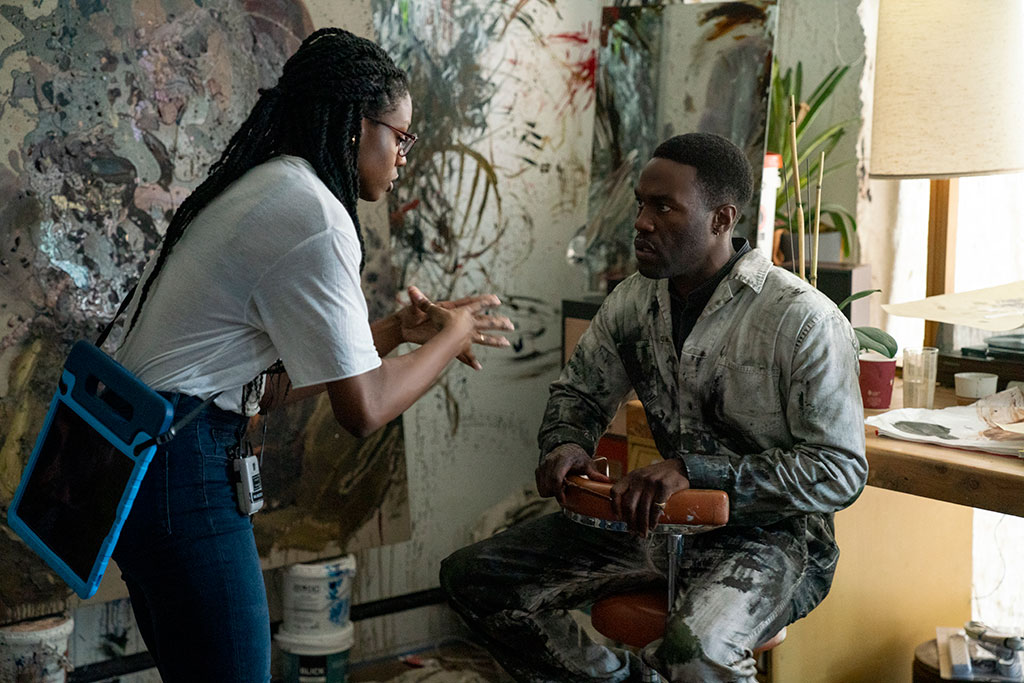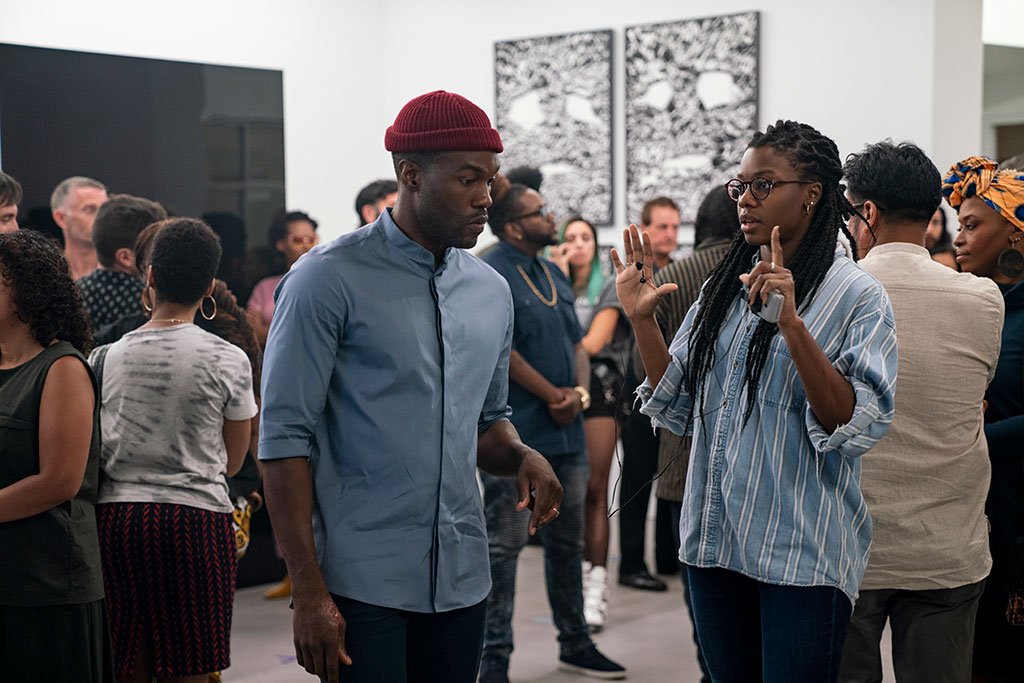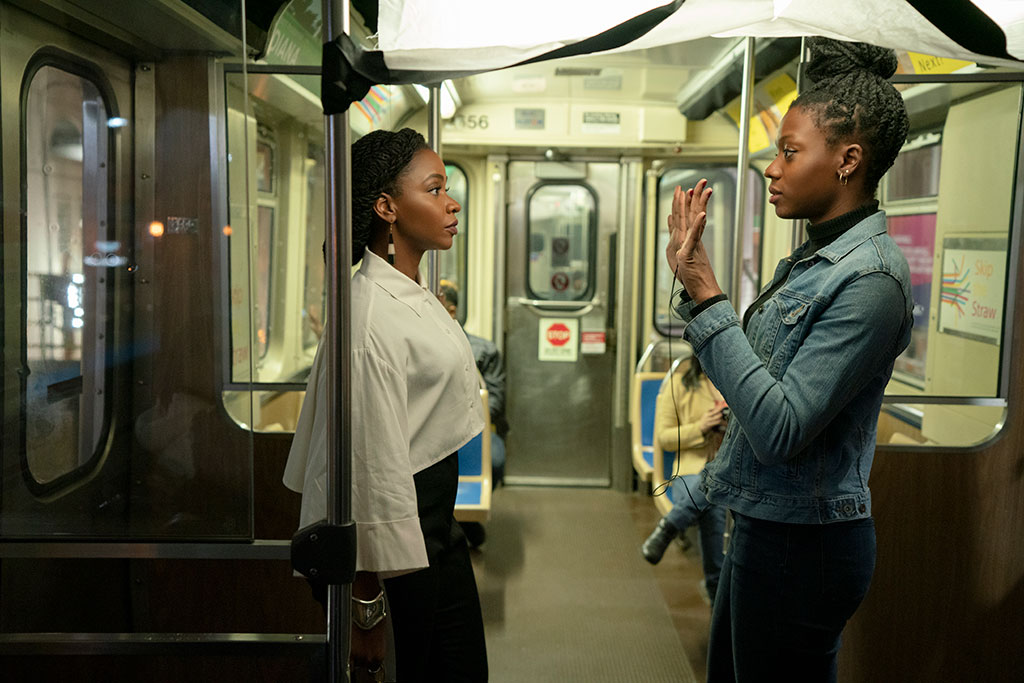The subtle curiosities of childhood, rendered with a surplus of innocent and seemingly innocuous experiences, can have a profound effect on an individual’s maturation into adulthood. Nia DaCosta’s earliest recollections of viewing film piqued an interest that continually grew more nuanced as she paced through her adolescence. Before the ubiquity of streaming and algorithmic endorsements, DaCosta recalls, she tuned into HBO and her family VHS collection to descend into cinematic fantasies. While the disjointed exploration of the human condition in Full Metal Jacket or the contextual ambiguity of American Beauty may have been too heady for the young artist, there was something alluring about the medium’s particular storytelling methodology.

Candyman: photos courtesy of Parrish Lewis/Universal Pictures and MGM.
Although she was initially enamoured of literature, through film DaCosta was able to become acquainted with newer narrative techniques. The budding creative eventually enrolled in the prestigious Tisch School of Arts at New York University, the alma mater of cinematic visionaries such as Martin Scorsese and Spike Lee. With a passion for screenwriting and a directorial vision, DaCosta released her first film Little Woods in 2018, a contemporary western led by Tessa Thompson.

Candyman: photos courtesy of Parrish Lewis/Universal Pictures and MGM.
When the Jordan Peele–written and–produced “spiritual sequel” to the 1992 horror classic Candyman was announced, DaCosta immediately became intrigued with seizing a slot as the project’s director. Her agent sent a copy of Little Woods to the production studio, which then expressed interest in the burgeoning motion picture artist. DaCosta was confident in being able to recreate the original film’s unique tone while adding her own twist on the narrative. Taking Rosemary’s Baby and The Fly as inspiration, DaCosta’s singular vision eventually nabbed her a seat in the director’s chair and a role as a co-writer.
For DaCosta, the idea of genre filmmaking poses a wealth of narrative possibilities wherein “you get a bigger canvas to paint on. You can be a bit more bombastic, which can be really useful in storytelling within horror or post-apocalyptic sci-fi films.” With Candyman, a cinematic reimagining of an urban legend, DaCosta was able to pry at certain psychological impulses evident within horror movies. “You really get to talk about humanity and the intricacies of the human condition,” she reveals, “and I think it’s a really interesting platform to sneak that conversation into media.”

Candyman: photos courtesy of Parrish Lewis/Universal Pictures and MGM.
While DaCosta may get to tackle existential concerns in Candyman, the film also builds upon the original’s inherent racial tensions. In the 1992 version, Virginia Madsen’s character Helen is repeatedly framed for murder by the central antagonist Daniel Robitaille, a Black man who was publicly lynched and is now terrorizing Chicago’s Cabrini–Green housing project as a bloodthirsty demon. The irony of a villainous African–American is not lost on DaCosta, regardless of Helen’s presumed innocence. With the 2020 adaptation of the film, DaCosta believes that contemporary society’s acknowledgment of racial disparities allows for a more “expansive, more specific, and in ways, more honest” portrayal of social injustices. The filmmaker also notes how “telling the story from the perspective of a Black main character, with a Black co-writer and a Black director, changes the way a viewer enters into the story, and that was really important for us.” The new Candyman tacks on the added complexities of gentrification, as the Cabrini–Green neighbourhood is demolished beyond recognition, and in its place stands a luxury condo building catering to upwardly mobile yuppies. However, the ghosts of demons past can never be pulverized into rubble or calcified into the bygone tragedy of Chicago’s historical tapestry.
While the world awaits the release of Candyman, DaCosta received some exciting news that even a pandemic could not thwart—she will direct the latest instalment in the Captain Marvel franchise. For DaCosta, Hollywood is her oyster, and she is only beginning to make a seismic splash.
Candyman is set to release in August 2021.

